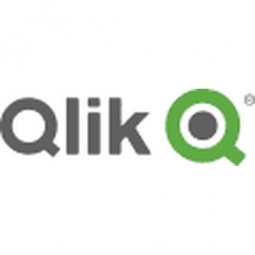下载PDF
Roxcel has a constant eye on the global market for paper by using Qlikview
技术
- 分析与建模 - 实时分析
适用功能
- 销售与市场营销
用例
- 供应链可见性(SCV)
- 需求计划与预测
服务
- 数据科学服务
挑战
Roxcel Group, a leading global retailer and wholesaler of paper and cartons, was facing challenges in managing its international transit trade due to its intense growth and presence in diverse markets. The company needed to gain an overview of all orders, flow of goods, and funds. The existing ERP solution was no longer sufficient to control the international transit trade. The company also needed to provide analysis capabilities on top of its internal ERP application and consolidate data across its global branches. The company was considering developing an analysis solution by itself.
关于客户
Roxcel Handels GmbH, part of the Roxcel Group, is one of the leading global retailers and wholesalers of paper and cartons. With a sales volume of 1 million tons, the company has a significant presence in the global market. Initially located only in the Middle and the Far East, Roxcel is currently active on all continents and amassed a total revenue of €570 million in 2005. The company provides its customers with financial support and completes all import requirements. The most recent project was the establishment of its own business division in Europe.
解决方案
Roxcel deployed QlikView to roughly 40 users to easily analyze sales, marketing, purchasing, and financial data, all focused on improving corporate performance. With QlikView Server, Roxcel was able to aggregate and free the large data volume previously locked in its internal ERP application. QlikView also enabled the complete and simple integration into the existing Java-based ERP application, allowing for direct analysis from the ERP system. QlikView is now broadly applied across many areas in Roxcel, providing detailed information about origin and supplier countries for purchasing, sales, and marketing. The financial department uses QlikView to monitor current Roxcel reserves and evaluate provisions against risks through export insurances.
运营影响
相关案例.

Case Study
Remote Temperature Monitoring of Perishable Goods Saves Money
RMONI was facing temperature monitoring challenges in a cold chain business. A cold chain must be established and maintained to ensure goods have been properly refrigerated during every step of the process, making temperature monitoring a critical business function. Manual registration practice can be very costly, labor intensive and prone to mistakes.

Case Study
Retail Uses RFID to Enable Cold Chain Monitoring
Like most grocery retailers, Hy-Vee is faced with the challenge of providing the highest quality products to its shoppers. Shoppers want the longest possible shelf life from perishable products and expect a consistent product experience each time they shop. Controlling the quality of products sold leads to shopper loyalty, which is of paramount importance to the success of Hy-Vee. Before products arrive in stores, Hy-Vee's distribution centers (DCs) handle items including dairy products, fresh meats, seafood, deli items, produce and frozen goods, all of which have different temperature needs and sensitivities. During transit from suppliers to DCs, Hy-Vee has limited visibility and temperature management abilities due to large amount of supplier managed transportation. For instance, during a week-long transit, a supplier's carrier equipment may malfunction, causing an item to thaw and then refreeze once repairs are made. Hy-Vee sought help from TempTRIP, an RFID solution provider that focuses on shipping, storage, receiving, and temperature control. TempTRIP's EPC RFID tags use Impinj chips to monitor and report temperature readings throughout the shipping and receiving process. The tags can also be re-configured and re-used, a unique feature within the current market of temperature monitoring devices.

Case Study
Covisint Improves Mitsubishi's Collaboration With Its Supply Chain
Mitsubishi sought to improve supplier relationships on a global basis and to offer an easy-to-use solution to interact with them. In August 2004, Mitsubishi selected Covisint’s platform to help improve sharing of information and collaborative business processes with its global suppliers. Covisint enabled Mitsubishi to provide its suppliers with immediate access to information and applications to obtain more collaborative working relationships








